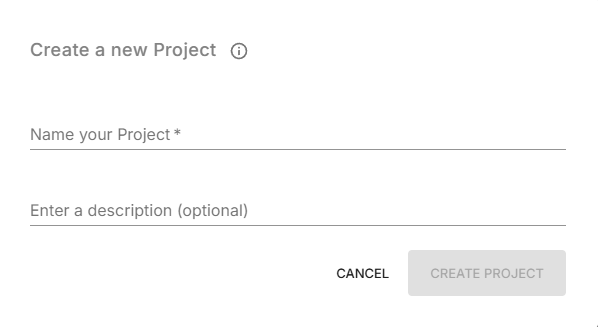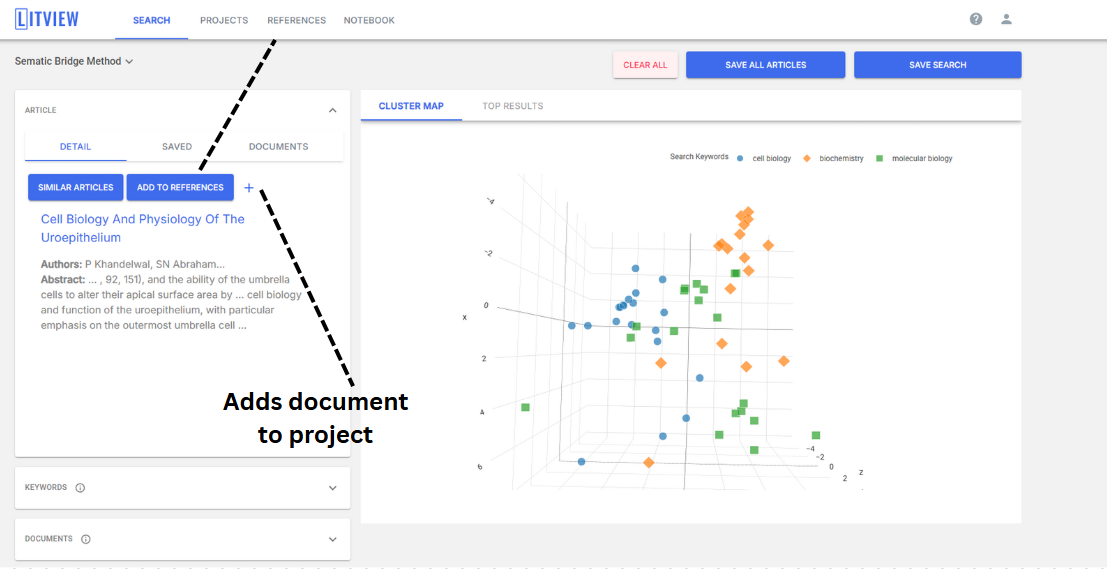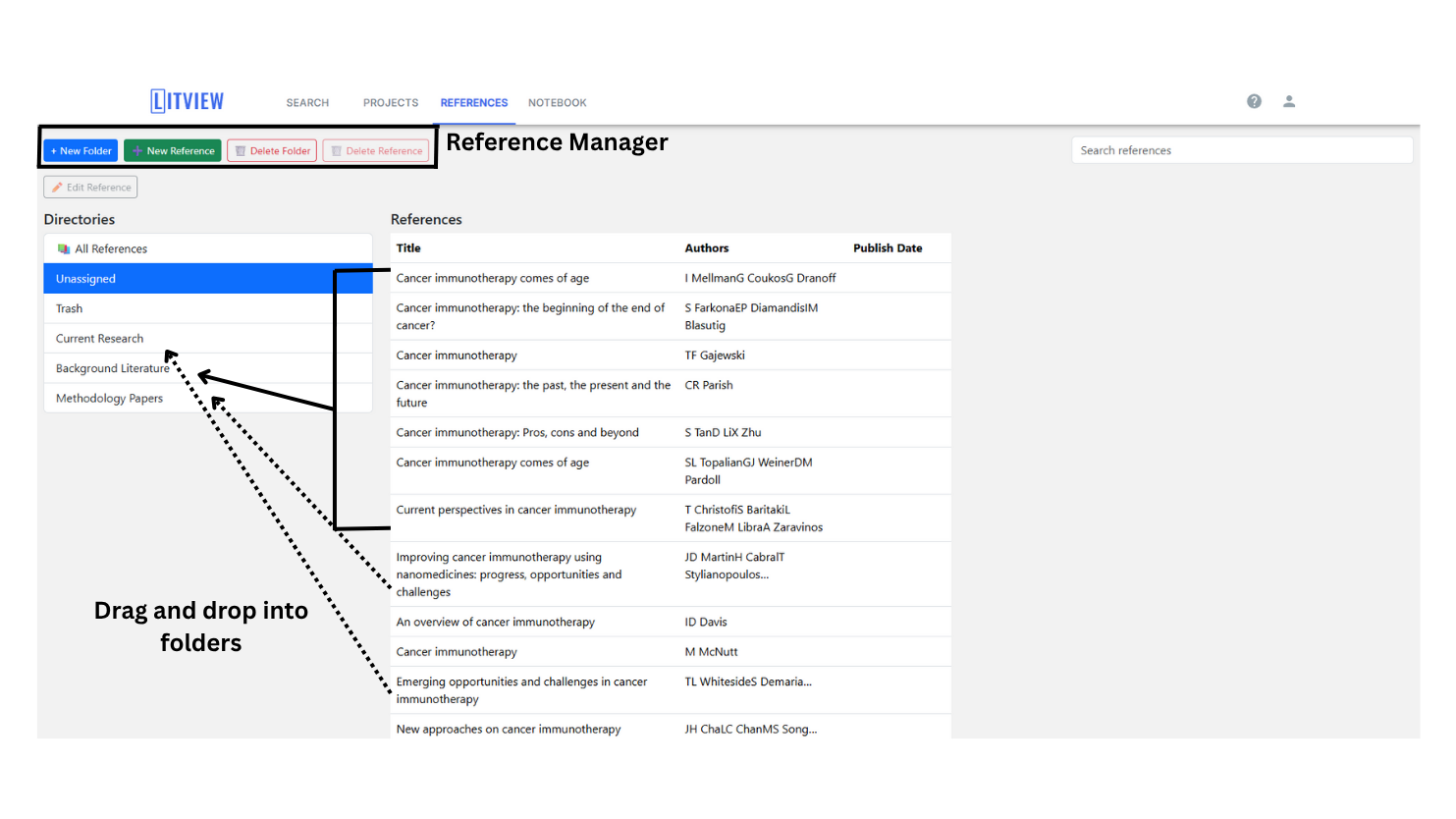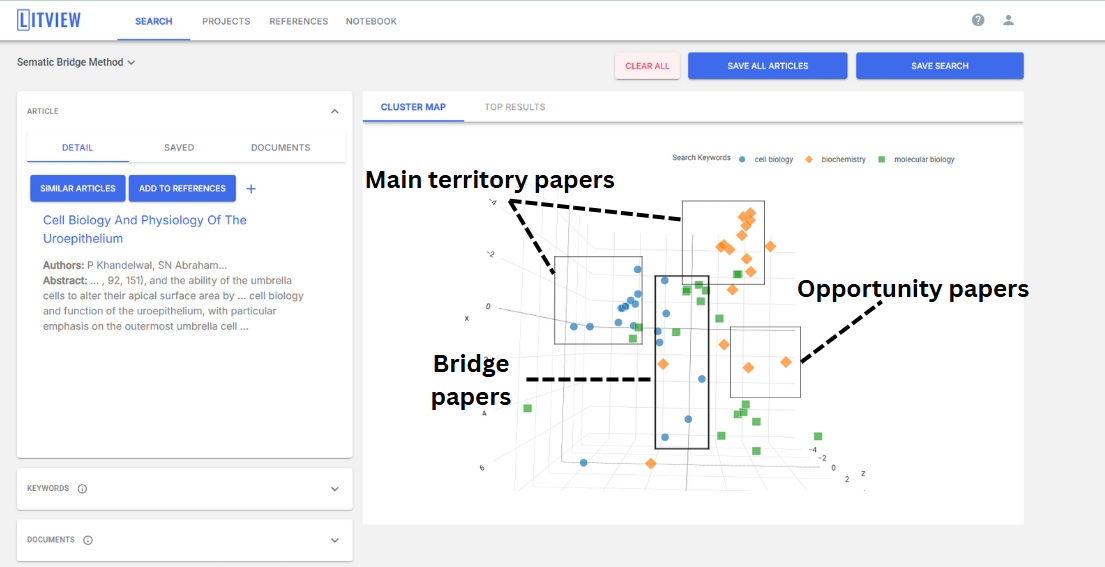Projects and Organization Guide
Transform your LitView search discoveries into organized research projects that support systematic literature review, collaboration, and long-term research development. This guide covers project creation, paper organization, and research workflow management.
From Search Results to Research Projects
Creating Your First Project

When to Create a Project
- After completing a successful search with valuable results
- When starting a new research initiative or literature review
- Before beginning systematic paper collection for grants or publications
- When organizing research for team collaboration
Project Setup Steps
- Navigate to the Projects tab in LitView
- Click “Create New Project”
- Choose a descriptive project name that reflects your research focus
- Add a brief description of your research goals and scope

Project Naming Best Practices
- Include research domain and specific focus: “AI-Medical-Diagnosis-Radiology”
- Add timeframe if relevant: “Climate-Adaptation-2024-Review”
- Use consistent naming conventions across related projects
- Avoid overly broad names that won’t scale: “Literature-Review”
Moving Papers from Search to Project

Selective Paper Addition
After cluster analysis, systematically add papers based on strategic value:
Core Foundation Papers
- Papers from the densest part of your main keyword cluster
- Foundational methodological papers that define the field
- Recent comprehensive reviews that provide field overviews
- Highly cited papers that represent established knowledge
Methodological Papers
- Papers from methodology-focused clusters adjacent to your main research area
- Cross-disciplinary papers that provide applicable methods
- Recent innovations in research approaches relevant to your work
- Validation studies that support methodological choices
Contextual Papers
- Papers from secondary clusters that provide important context
- Interdisciplinary papers that connect your field to broader domains
- Policy or application papers that demonstrate real-world relevance
- Historical papers that provide important background
Exploratory Papers
- Interesting outliers that might provide unexpected insights
- Papers from sparse regions that represent emerging opportunities
- Bridge papers that connect different research domains
- Recent papers that might indicate emerging trends
Project Organization Strategies

Thematic Organization Approach
By Research Question
Organize papers according to specific research questions they address:
- What are the current technical approaches?
- What are the main application domains?
- What are the key limitations and challenges?
- What are the emerging opportunities and directions?
By Methodology Group papers based on research methods and approaches:
- Experimental studies and clinical trials
- Computational modelling and simulation
- Theoretical frameworks and analysis
- Review papers and meta-analyses
By Timeline Organize papers chronologically to understand field evolution:
- Foundational papers (historical importance)
- Established work (current standard approaches)
- Recent developments (cutting-edge advances)
- Emerging work (preprints and very recent publications)
Advanced Organization Techniques

Cluster-Based Organization
Use insights from LitView cluster analysis to organize projects:
Main Territory Papers
- Papers from your primary keyword convergence cluster
- Represents the core research conversation in your area
- Essential reading for understanding current state of knowledge
Bridge Papers
- Papers that appeared between major clusters in your search
- Often provide methodological insights or theoretical frameworks
- Valuable for connecting different aspects of your research
Opportunity Papers
- Papers from sparse regions or research gaps you identified
- Represent potential directions for original contribution
- May require more critical evaluation but offer innovation potential
Context Papers
- Papers from adjacent clusters that provide broader perspective
- Help situate your research within larger academic conversations
- Important for comprehensive literature reviews and grant applications
Systematic Literature Organization
Paper Evaluation and Tagging
Quality Assessment Tags
Develop consistent criteria for evaluating paper relevance and quality:
Relevance Categories
- High relevance: Directly addresses your research questions
- Medium relevance: Provides important context or methodology
- Low relevance: Tangentially related but potentially useful
- Reference only: Important for completeness but not detailed review
Quality Indicators
- Peer-reviewed vs. preprint status
- Journal impact factor or conference ranking
- Citation count and recency
- Methodological rigor and reproducibility
Strategic Value Tags
- Must-read: Essential papers for understanding the field
- Methodology: Papers that provide applicable research methods
- Innovation: Papers that demonstrate novel approaches or findings
- Context: Papers that provide broader perspective or background
Long-Term Project Maintenance
Project Evolution Strategies
Maintain projects as research develops and literature grows:
Regular Project Updates
- Schedule periodic literature searches to identify new relevant papers
- Update project organization as research focus evolves
- Maintain currency of key papers and recent developments
- Archive outdated or superseded literature while preserving historical context
Project Documentation
- Maintain clear records of search strategies and inclusion criteria
- Document decision-making process for paper inclusion and organization
- Track evolution of research questions and focus areas
- Preserve methodology for reproducibility and institutional knowledge
Project Completion and Archiving
- Develop clear criteria for project completion
- Create comprehensive project summaries and literature synthesis
- Archive projects in accessible format for future reference
- Transfer project insights to subsequent research initiatives
Common Project Organization Challenges
Scope Management Issues
Problem: Project Becomes Too Broad
Solution: Create focused sub-projects for specific research aspects
- Use cluster analysis to identify natural division points
- Maintain umbrella project for general coordination
- Set clear boundaries and inclusion criteria for each sub-project
Problem: Missing Important Literature
- Solution: Conduct periodic supplementary searches with refined keywords
- Cross-reference with citation networks from key papers
- Consult domain experts for literature recommendations
- Use different databases to ensure comprehensive coverage
Quality Control Challenges
Problem: Inconsistent Paper Evaluation
Solution: Develop explicit evaluation criteria and rubrics
- Train team members on consistent evaluation approaches
- Regular calibration exercises to maintain evaluation consistency
- Document decision-making rationale for future reference
Problem: Project Organization Becomes Unwieldy
Solution: Regular project reorganization based on emerging patterns
- Use cluster insights to identify natural organization structures
- Simplify tag systems and reduce unnecessary complexity
- Focus on organization schemes that support specific research goals
Ready to enhance your workflow further? Continue References and Citations for publication-ready literature organization.